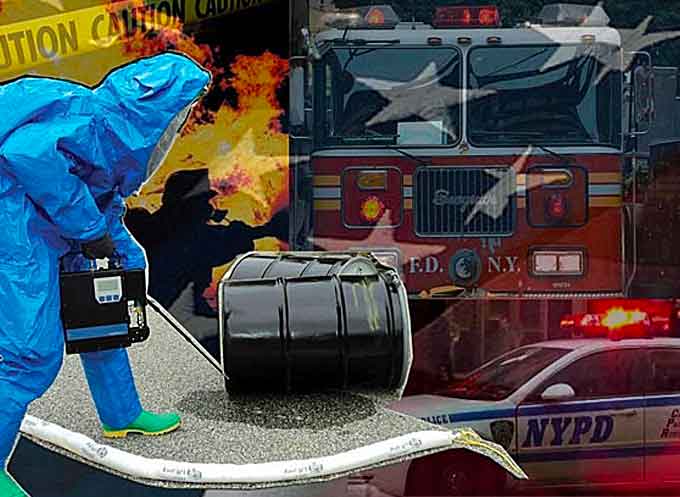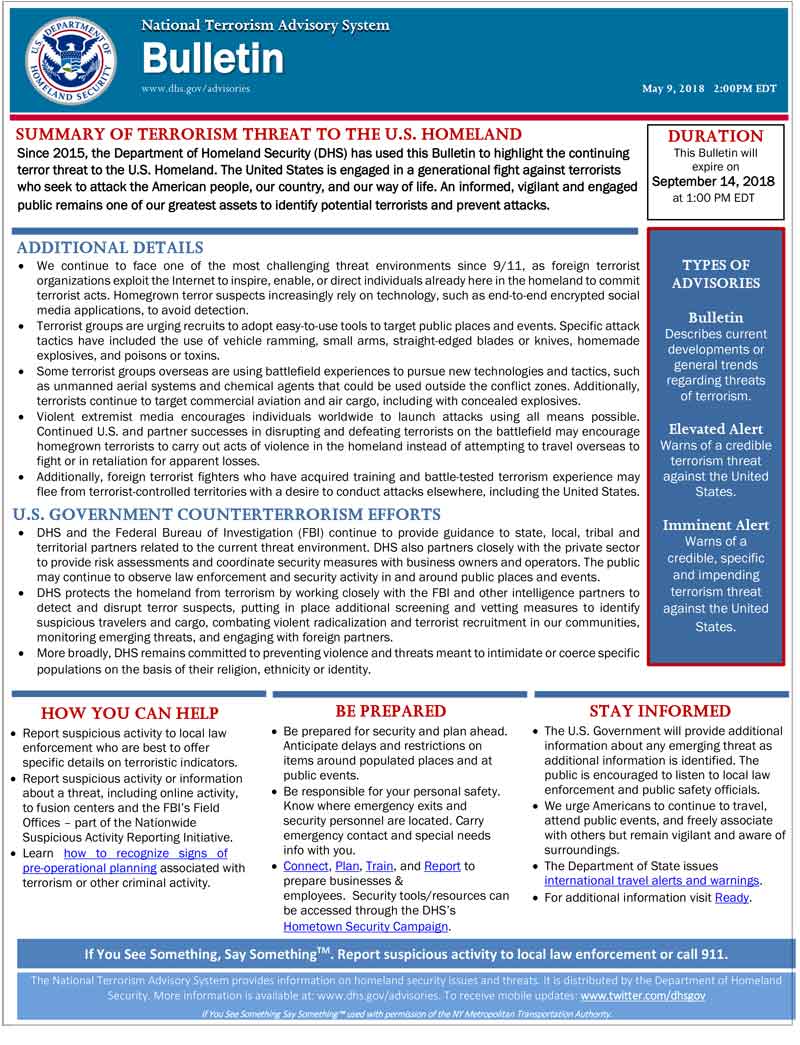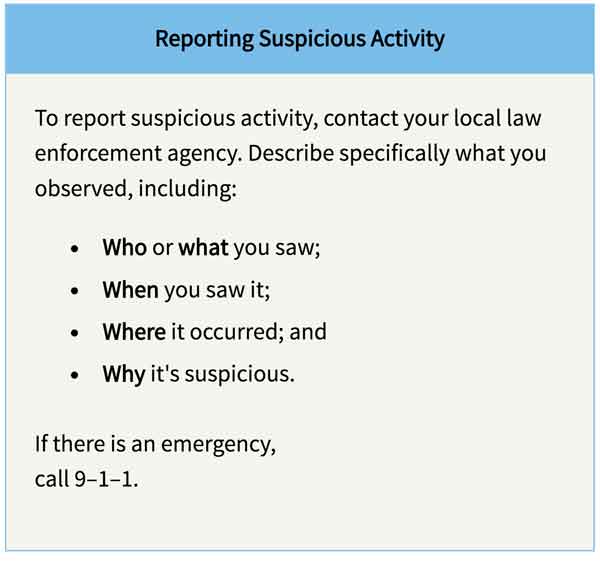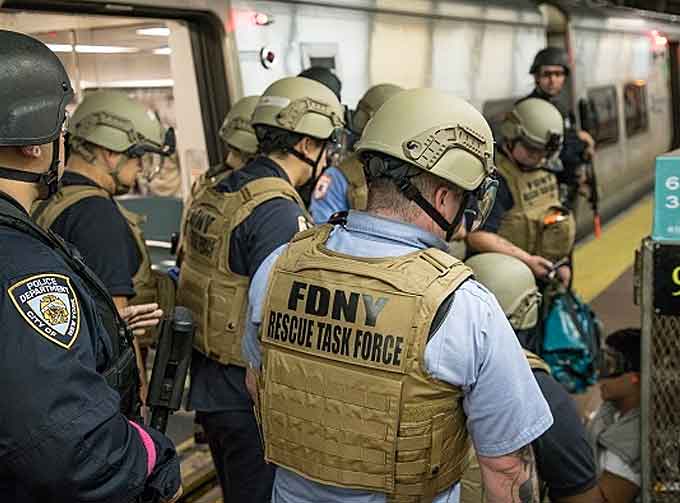
Secretary of Homeland Security Kirstjen M. Nielsen has reissued the National Terrorism Advisory System (NTAS) Bulletin pertaining to the terror threat to the U.S. homeland.
After carefully considering the current threat environment, as well as input from the Department’s intelligence and law enforcement partners, Secretary Nielsen determined it is necessary to extend the NTAS Bulletin at this time.

Terrorist groups continue to inspire, enable, and direct their followers to spread chaos using homemade weapons and by striking soft targets and crowded places.
They also remain focused on conducting more sophisticated attacks using conventional weapons as well as new technologies and tactics.
DHS is committed to staying a step ahead of our enemies, and an informed and vigilant public remains one of the Department’s greatest assets in protecting the homeland.

Since 2015, the Department of Homeland Security (DHS) has used this Bulletin to highlight the continuing terror threat to the U.S. Homeland.
The United States is engaged in a generational fight against terrorists who seek to attack the American people, our country, and our way of life.
An informed, vigilant and engaged public remains one of our greatest assets to identify potential terrorists and prevent attacks.
Details
- We continue to face one of the most challenging threat environments since 9/11, as foreign terrorist organizations exploit the Internet to inspire, enable, or direct individuals already here in the homeland to commit terrorist acts.
- Homegrown terror suspects increasingly rely on technology, such as end-to-end encrypted social media applications, to avoid detection.
- Terrorist groups are urging recruits to adopt easy-to-use tools to target public places and events.
- Specific attack tactics have included the use of vehicle ramming, small arms, straight-edged blades or knives, homemade explosives, and poisons or toxins.
- Some terrorist groups overseas are using battlefield experiences to pursue new technologies and tactics, such as unmanned aerial systems and chemical agents that could be used outside the conflict zones.
- Additionally, terrorists continue to target commercial aviation and air cargo, including with concealed explosives.
- Violent extremist media encourages individuals worldwide to launch attacks using all means possible.
- Continued U.S. and partner successes in disrupting and defeating terrorists on the battlefield may encourage homegrown terrorists to carry out acts of violence in the homeland instead of attempting to travel overseas to fight or in retaliation for apparent losses.
- Additionally, foreign terrorist fighters who have acquired training and battle-tested terrorism experience may flee from terrorist-controlled territories with a desire to conduct attacks elsewhere, including the United States.
U.S. Government Counterterrorism Efforts
- DHS and the Federal Bureau of Investigation (FBI) continue to provide guidance to state, local, tribal and territorial partners related to the current threat environment.
- DHS also partners closely with the private sector to provide risk assessments and coordinate security measures with business owners and operators.
- The public may continue to observe law enforcement and security activity in and around public places and events.
- DHS protects the homeland from terrorism by working closely with the FBI and other intelligence partners to detect and disrupt terror suspects, putting in place additional screening and vetting measures to identify suspicious travelers and cargo, combating violent radicalization and terrorist recruitment in our communities, monitoring emerging threats, and engaging with foreign partners.
- More broadly, DHS remains committed to preventing violence and threats meant to intimidate or coerce specific populations on the basis of their religion, ethnicity or identity.
Types of Advisories
Bulletin
Describes current developments or general trends regarding threats of terrorism.
Elevated Alert
Warns of a credible terrorism threat against the United States.
Imminent Alert
Warns of a credible, specific and impending terrorism threat against the United States.

How You Can Help
- Report suspicious activity to local law enforcement who are best to offer specific details on terroristic indicators.
- Report suspicious activity or information about a threat, including online activity, to Fusion Centers and the FBI’s Field Offices – part of the Nationwide Suspicious Activity Reporting Initiative.
- Learn how to recognize signs of pre-operational planning associated with terrorism or other criminal activity.
(Homeland security begins with hometown security. This PSA seeks to empower everyday citizens to protect their neighbors and the communities they call home by recognizing and reporting suspicious activity. Across the country, we all play a role in keeping each other safe. Courtesy of the U.S. Department of Homeland Security and YouTube)
Be Prepared
- Be prepared for security and plan ahead.
- Anticipate delays and restrictions on items around populated places and at public events.
- Be responsible for your personal safety. Know where emergency exits and security personnel are located.
- Carry emergency contact and special needs info with you.
- Connect, Plan, Train, and Report to prepare businesses & employees.
- Security tools/resources can be accessed through the DHS’s Hometown Security Campaign.
Stay Informed

- The U.S. Government will provide additional information about any emerging threat as additional information is identified.
- The public is encouraged to listen to local law enforcement and public safety officials.
- We urge Americans to continue to travel, attend public events, and freely associate with others but remain vigilant and aware of surroundings.
- The Department of State issues international travel alerts and warnings.
- For additional information visit Ready.
If You See Something, Say Something™.

How observant are you? Take the Challenge Now and Find Out at https://www.dhs.gov/see-something-say-something.
Report suspicious activity to local law enforcement or call 911.



















